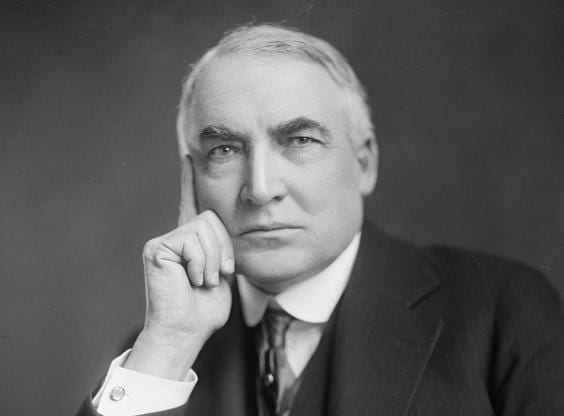The Democratic National Convention begins today, ending on Thursday, marking the formal beginning of the 2020 Presidential Election campaign. (I know, it has already dragged on too long, but with the official selection of the party’s nominee, the final contest will be joined.)
Poor Milwaukee. The city–I used to live in one of its suburbs–was all excited about showcasing itself when it got the nod to host the convention, but now the convention will be mostly digital. Not even the convention’s candidate will come to town. Four years ago, some 15,000 journalists covered the convention in Philadelphia. This year, there will be fewer than a hundred, and no anchors or celebrity reporters. Just a few hundred operatives voting by proxy, with Zoom meetings and video productions.
You can watch the proceedings online, if you really want to, but network TV will only devote one hour per night–and a late hour at that (10:00 p.m. ET)–to convention coverage. You can watch more on the news networks, but I suspect the ratings will be low. Everything has been decided and there won’t even be colorful delegates at the roll call of states, so there doesn’t seem too much point in watching.
John F. Harris, in his Politico article The Epic Blandness of the Joe Biden Campaign, says that Joe Biden’s weaknesses are his strength. His “epic blandness,” his “cult of nonpersonality,” his status as an establishment politician who has been around seemingly forever, is the polar opposite of Donald Trump’s flamboyance, “cult of personality,” and anti-establishment insurgency. Harris believes that the American public overall is sick and tired of presidents who are charismatic, inspirational leaders who promise grandiose solutions to our problems. Which is why Biden is so far ahead of Trump in the polls.
I think Harris is onto something, but I don’t think his distinction between the “bland” and the “flamboyant” quite captures it. I think the distinction is between “normalcy” and “disruption.”
In 2020–what with the coronavirus epidemic, its accompanying shutdowns and restrictions, the protests, the riots, the economic turmoil, the daily dramas–Americans yearn to get back to normal. Not in some ideological sense, but just being able to do ordinary things with impunity: going shopping; being part of a crowd; traveling; going to church; seeing an unmasked human face.
We crave a “return to normalcy.” That was Warren G. Harding‘s campaign slogan when he was running for president exactly 100 years ago, in the election of 1920. In reality, he was a corrupt philanderer, but he exuded normalcy, and when he died in office–a herald of what could happen to our elderly office-holders?–he was succeeded by an even greater virtuoso of blandness and normalcy (who actually was a pretty good president), Calvin Coolidge.
Joe Biden is the closest thing we have today to Warren G. Harding. No wonder he is leading in the polls over Donald Trump! He is the great disrupter. That played well in 2016. We wanted someone to disrupt the Washington establishment–the political parties, the bureaucracy, the “swamp”–and his fiery personality, his anger, his willingness to say whatever is on his mind, his capacity to shock fit well the national mood.
Today all of that falls flat. The general public is tired of his schtick. Even among his devoted followers, one sometimes hears, “I don’t like him personally, I just agree with him” and “I wish he would stop Tweeting.” His attempts to rile people up, as he did in 2016, just turn people off. They are tired of being riled up.
But there is hope for Trump’s re-election. He isn’t the only disrupter. He isn’t the only threat to normalcy.
Average Americans may be weary of Trump’s rage, but they are also weary of the Democrats’ constant outrage. The general public does not like rioting and looting. They don’t like public shaming, virtue signaling, or the cancel culture. They are sick of having to walk on egg shells lest they offend someone and lose their livelihood. They are wondering, do we really want to put the people who perpetrate these disruptions in charge of the government?
This desire for normalcy rather than more disruptions pre-dated the coronavirus. Democrats got to choose from a whole array of disrupters, including a socialist who vowed to start a revolution, and yet they chose the seemingly least disruptive, most normal candidate of them all in Joe Biden. These were rank-and-file Democrats who chose him over the other candidates. Black Americans, while affirming that Black Lives Matter, chose Biden over the radical disrupters.
The question now is whether Biden will try to reinvent himself as a disrupter. Or will he be so bland and normal that he will let the radicals in his party have their way with him? Though Biden overwhelmingly defeated the radicals in his party, he now seems to be trying to model himself after them. His Vice Presidential choice, Kamala Harris, is a disrupter. He has been talking about “transforming” this country, rather than bringing it back to normal. He has called for a nation-wide mandate requiring all Americans to wear masks for three-months, even when they are outdoors. Will that appeal to the normalcy vote?
The coronavirus has made Americans feel the hand of government on their personal lives as never before, both in its largesse (stimulus checks, business bailouts, unemployment supplements) and in its coercive power (orders to shutdown your business; orders forbidding going to work, school, or church; mandates to stay inside your house). All of that might have been necessary due to the public health emergency, but most Americans feel that their government–on the national, state, and local levels–have been responding with both over-reach and incompetence.
Strangely, though it was Donald Trump who first imposed the nation-wide restrictions, he gets neither credit nor blame for doing so. But at least he wants to get things back to normal with the virus, even though he might be accused of trying to do that prematurely. The Democrats seem to want to crack down on Americans’ lives even more, even though they might be accused of dragging their feet.
Again, who will win the normalcy vote? That remains to be seen.
By the way, I am not here giving my own political views–I myself think that some disruption of the status quo is needed–simply trying to describe what I see as the national mood. Feel free to offer your own assessment of the national mood and its political implications in the comments.
Photo: Warren G. Harding, by Harris & Ewing / Public domain via Wikimedia Commons













